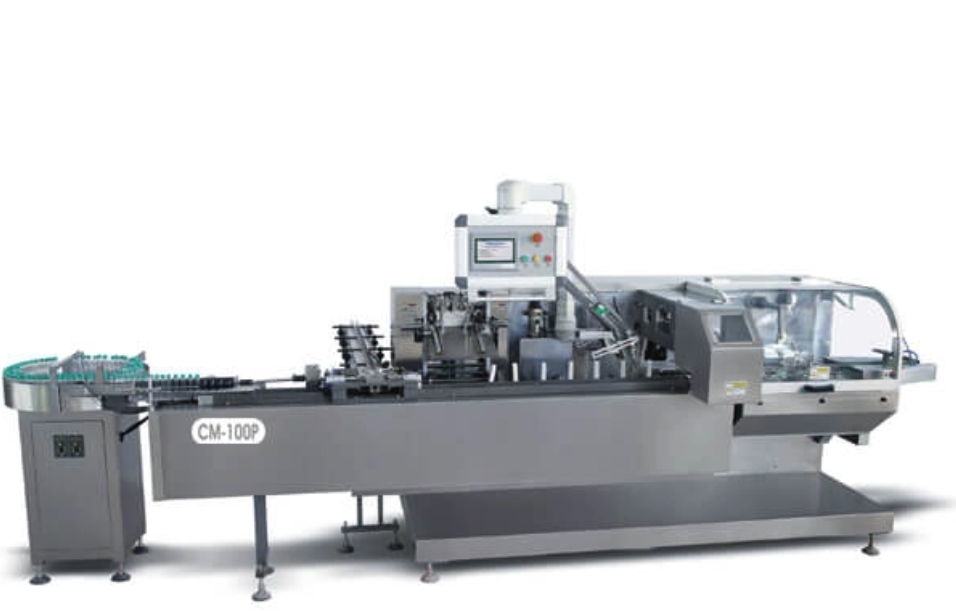How to Choose the Right Cartoner for Your Needs?
RH Business Marketing Solutions
In the dynamic world of packaging, the cartoner plays a pivotal role in ensuring efficiency, reliability, and productivity. A cartoner, or cartooning machine, is designed to automatically fold cartons, fill them with products, and then seal them for distribution and sale. With a myriad of cartoners available in the market, each with its unique set of features and capabilities, selecting the right one can be a daunting task.
In this comprehensive guide will walk you through the essential factors to consider when choosing the perfect cartoner for your specific needs.
Understanding Your Requirements
Before diving into the vast sea of cartooning machines, it's crucial to have a clear understanding of your requirements. Consider the following aspects:
Product Characteristics
The nature of the product you intend to package plays a significant role in determining the type of cartoner you need. Evaluate the size, shape, and fragility of your product. Additionally, consider whether your product is a solid, liquid, or powder, as each state may require different handling capabilities.
Carton Specifications
The carton's material, dimensions, and design will influence your choice. Some cartoners are better suited for working with specific materials or carton sizes. Also, consider whether you need a machine that can handle multiple carton sizes or one that specializes in a single size.
Production Volume
Your production volume is another critical factor. Assess your current production needs and any anticipated growth in the future. Cartoning machines vary in their speed and efficiency, so choosing a machine that can accommodate your production volume is essential.
Types of Cartoners
Once you have a good understanding of your requirements, it's time to explore the different types of cartoners available:
Horizontal Cartoners
Horizontal cartoners are ideal for products that can be easily pushed into the carton from the side. They are versatile and can handle a wide range of products and carton sizes, making them suitable for industries such as food, cosmetics, and pharmaceuticals.
Vertical Cartoners
Vertical cartoners are best suited for loose, granular, or powdered products that can be dropped into the carton from above. This type is commonly used in the food industry for packaging items like cereals and snacks.
End Load and Top Load Cartoners
End load cartoners insert products into the carton from one end, while top load cartoners load products from the top. Your product's characteristics and the desired presentation in the carton will determine which loading method is more appropriate.
Key Features to Look For
When comparing cartoners, pay attention to the following features that can significantly impact performance and efficiency:
Speed and Efficiency
The machine's speed, measured in cartons per minute (CPM), should align with your production requirements. However, it's also important to consider the machine's efficiency and how quickly it can be adjusted for different runs or products.
Flexibility and Scalability
A cartoner that offers easy adjustments for different sizes and types of cartons can provide greater flexibility and scalability, accommodating future changes in your product line or packaging needs.
Durability and Reliability
Invest in a cartoner built with high-quality materials and designed for durability. A reliable machine reduces downtime and maintenance costs over time.
Ease of Use and Maintenance
A user-friendly interface and easy access to machine parts for cleaning and maintenance can save time and reduce the risk of operational errors.
Budget Considerations
Budget is an essential factor in the decision-making process. While it's important to find a cartoner within your price range, consider the total cost of ownership, including maintenance, parts replacement, and potential downtime. Investing in a higher-quality machine may offer better long-term value through increased reliability and efficiency.
The Importance of Vendor Selection
Choosing the right vendor is as crucial as selecting the cartoner itself. Look for vendors with a strong reputation, excellent customer service, and comprehensive after-sales support. Ensure they have a proven track record in your industry and can provide references or case studies.
Conclusion
Selecting the right cartoner for your needs requires careful consideration of your product characteristics, production volume, and specific requirements. By understanding the different types of cartoners available and the key features to look for, you can make an informed decision that aligns with your operational goals and budget.
Remember, the right cartoner is not just about the immediate benefits but also about ensuring scalability, efficiency, and reliability in the long run.
